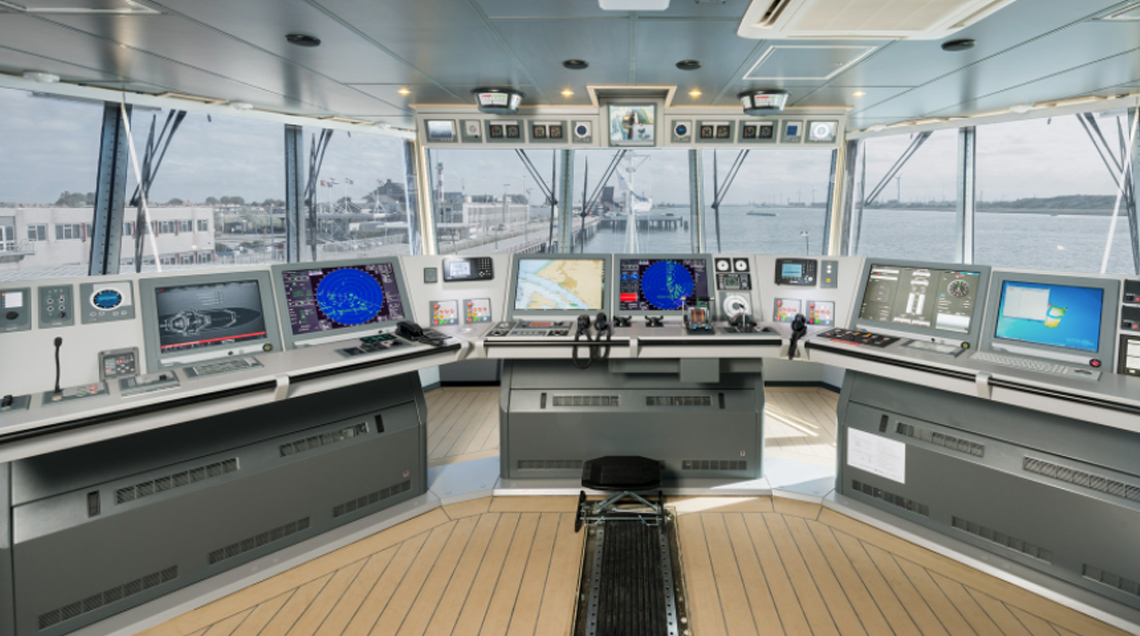Blog Post
How Modern Marine Navigation Systems Enhance Safety and Efficiency at Sea
Posted By: Harsh Bamnolia
Posted On : 30-Mar-2025

How Modern Marine Navigation Systems Enhance Safety and Efficiency at Sea
Understanding the Importance of a Marine Navigation System
A marine navigation system plays a crucial role in ensuring safe and efficient voyages across the world's oceans.
It comprises a range of electronic and digital tools designed to assist in route planning, collision avoidance, weather monitoring, and emergency communication.
The evolution of marine navigation systems has drastically improved the ability of ships to safely traverse unpredictable sea conditions, reduce fuel consumption, and enhance operational efficiency.
In 2025, advanced marine navigation systems are more sophisticated than ever, incorporating real-time data, satellite communication, and automation technologies to improve safety standards.
This guide explores how modern marine navigation systems contribute to maritime security, efficiency, and compliance with international regulations.
How a Marine Navigation System Enhances Safety and Efficiency at Sea
The marine navigation system is vital for maritime safety, operational efficiency, and regulatory compliance.
Let's explore the key ways in which modern navigation systems have transformed the industry.
1. Real-Time GPS Positioning and Route Optimization
The GPS-based marine navigation system allows ships to determine their exact location with high accuracy.
Automated route planning helps vessels avoid dangerous areas, shallow waters, and busy shipping lanes.
Modern systems integrate AI-powered optimization tools to suggest the most fuel-efficient and time-saving routes.
2. Enhanced Collision Avoidance with AIS and RADAR
The Automatic Identification System (AIS) provides real-time data about nearby vessels, their speed, and heading.
RADAR (Radio Detection and Ranging) helps detect obstacles, land masses, and icebergs, even in low visibility conditions.
Collision avoidance alarms alert captains of potential hazards, improving situational awareness.
3. Weather Monitoring and Storm Prediction
Marine navigation systems are equipped with advanced meteorological tools that provide real-time weather updates.
Storm tracking capabilities allow ships to adjust their course to avoid extreme weather conditions.
Integration with Navtex receivers ensures timely warnings about hurricanes, fog, and rough seas.
4. Digital Charting with ECDIS for Accurate Navigation
The Electronic Chart Display and Information System (ECDIS) has replaced traditional paper charts.
Provides continuous position tracking and automatic updates for safe and efficient voyage planning.
Reduces the risk of human errors in navigation and enhances compliance with IMO and SOLAS regulations.
5. Improved Fuel Efficiency with Smart Navigation
Marine navigation systems integrate with fuel optimization software, reducing fuel consumption and operating costs.
Eco-friendly routing helps ships select the most fuel-efficient course, cutting down carbon emissions.
Autonomous navigation tools adjust the ship’s speed for optimal energy efficiency.
6. Emergency Communication and Search & Rescue Assistance
GMDSS (Global Maritime Distress and Safety System) ensures ships can send and receive distress signals in emergencies.
AIS SART (Search and Rescue Transponder) helps rescue teams locate vessels quickly.
VDR (Voyage Data Recorder) acts like a "black box" and aids in post-accident analysis.
Cutting-Edge Marine Navigation Systems Offered by Marinetech
As a trusted provider of marine navigation solutions, Marinetech Safety & Shipping Corporation offers a wide range of advanced marine navigation equipment that enhances safety and efficiency at sea.
1. GPS and AIS Solutions
High-precision GPS receivers for accurate positioning.
AIS (Automatic Identification System) for real-time tracking and collision prevention.
2. RADAR and ECDIS Navigation Systems
X-band and S-band RADAR systems for early hazard detection.
ECDIS digital charting for automated route planning and monitoring.
3. GMDSS Communication Systems
VHF, MF/HF, UHF radio systems for effective maritime communication.
Navtex receivers for receiving critical navigational warnings and alerts.
4. AIS SART and EPIRB for Search and Rescue Operations
AIS SART (Search and Rescue Transponder) for enhanced emergency signaling.
EPIRB (Emergency Position Indicating Radio Beacon) for coordinating rescue missions.
5. Advanced Smart Navigation Technologies
AI-integrated route optimization tools for fuel efficiency and safety.
Automation-enabled bridge navigation for improved decision-making.
Conclusion
A marine navigation system is essential for ensuring the safety, efficiency, and compliance of modern vessels.
With features like GPS tracking, AIS collision avoidance, RADAR monitoring, and AI-powered optimization, today's marine navigation technologies are smarter and more reliable than ever.
Investing in a high-quality marine navigation system ensures operational success and regulatory compliance while reducing fuel consumption and environmental impact.
At Marinetech Safety & Shipping Corporation, we offer state-of-the-art marine navigation systems designed for maximum safety, efficiency, and ease of use.
To explore our full range of navigation equipment and solutions, visit https://marinetechss.com/services/electronic-and-navigation-communication-service today!